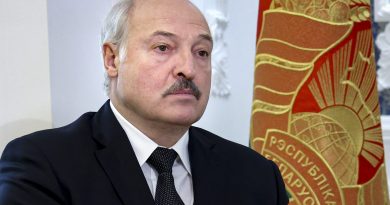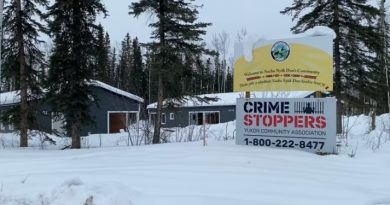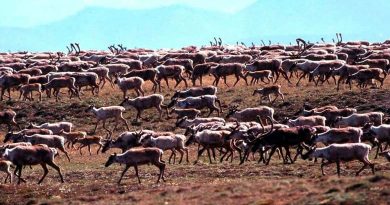Archivists poring over 75,000 hours of stories in northern Indigenous languages collected by Canadian broadcaster
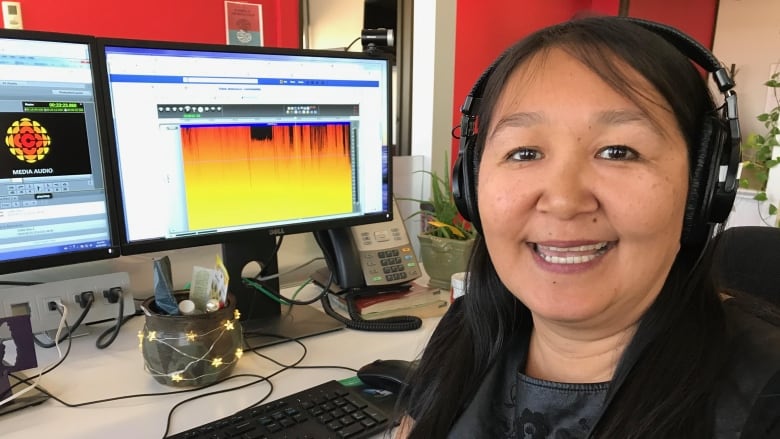
About 65 years ago, Joe Kiloonik was hunting caribou near Taloyoak, Nunavut, in Canada’s eastern Arctic, when he came across something unexpected: dozens of letters scattered in the snow.
Kiloonik found a couple letters addressed to Ernie Lyall, a radio broadcaster in town. When he contacted Lyall, he found out these letters had been dropped from an airplane 24 years earlier. They were lost, and now found.
That’s just one of the thousands of stories coming to light via CBC’s Indigenous languages archives project. Seventeen people in Yellowknife, Iqaluit, Whitehorse, Montreal and Toronto are working on archiving 75,000 hours worth of recorded stories and legends collected over six decades in eight Indigenous languages: Gwich’in, Inuvialuktun, Tlicho, North Slavey, South Slavey, Denesuline, Cree and Inuktitut.
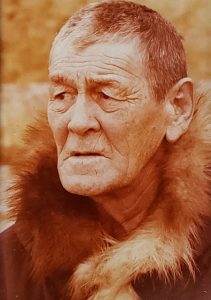
“It’s like listening to them speak in their living room even though they’ve been dead for many years,” said Susie Zettler about listening to people on the recordings.
Zettler, originally from Pangnirtung, Nunavut, has been working with the archiving project in the Inuktitut language for two years.
“I feel like they’re just there,” she said.
The stories span from the 1950s to 2017. Zettler says they not only help her and others connect with people from the past, but they also teach them about what life was like: for example, dropping letters in northern communities via airplane was a monthly occurrence.
“We don’t have history books like they do down south,” said Lucy Ann Yakelaya. She’s originally from Fort Good Hope, N.W.T., and works on the archive project in North Slavey.
“This is probably our history.”
Separating themselves from tragedies
That history also includes stories of vulnerability, injustice and sadness. Zettler says when she first started listening to the stories, it was hard not to feel the same emotions that she heard in people’s voices.
“We had to ask someone over to show us how to take care of ourselves,” she said.
“They talk about long time ago when the children were taken away to [residential] school too, that was a hard part for the parents,” said Mary Ann Williams, originally from Deline, N.W.T., who works for the archive project in North Slavey. “And the parents getting taken away for [tuberculosis].”
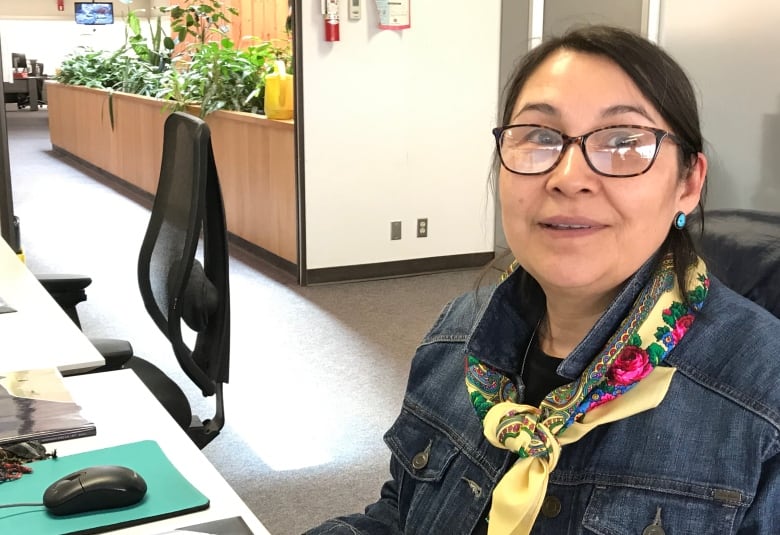
Zettler says these days, it’s easier to remove themselves from the stories and think more about the service this project will provide.
“It’s really amazing,” she said. “When you hear [a story], you picture all their family.”
“Children that never met their grandparents, they can hear what their life was like and how they lived,” Williams said.
<h6
Betty Harnum, linguist and project lead, has lived in the North for 45 years. She loves watching the archivists react to some of the stories they hear. Sometimes, she says, she catches them singing along to an old tune that’s recorded.
She says the best thing about this project though, is where it comes from.
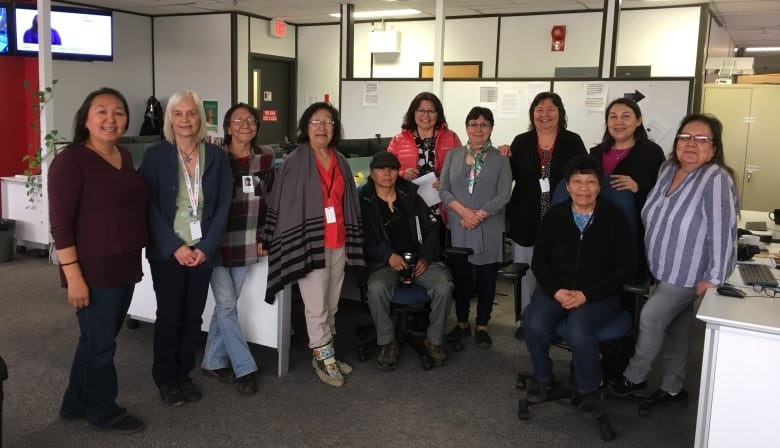
“This is northern history from an Indigenous perspective, oral history of people on the frontline,” she said.
The archivists still have thousands of records to go through in the next three years.
Once they’re finished, the hope is to make the stories available online for anyone who wants to hear.
Harnum is also working with libraries and organizations around the territory to see if they’ll be able to set up computer stations where people could grab a pair of headphones and listen to a frontline history lesson.
Related stories from around the North:
Canada: Gijiht’aii (try), says 23-year-old taking year off to learn Gwich’in language in Northern Canada, CBC News
Iceland: Can environmental diplomacy save Arctic languages?, Blog by Takeshi Kaji
Norway: Inuit, Sami leading the way in Indigenous self-determination, study says, CBC News
United States: Indigenous leaders at UN meeting push for decade dedicated to language revitalization, CBC News

